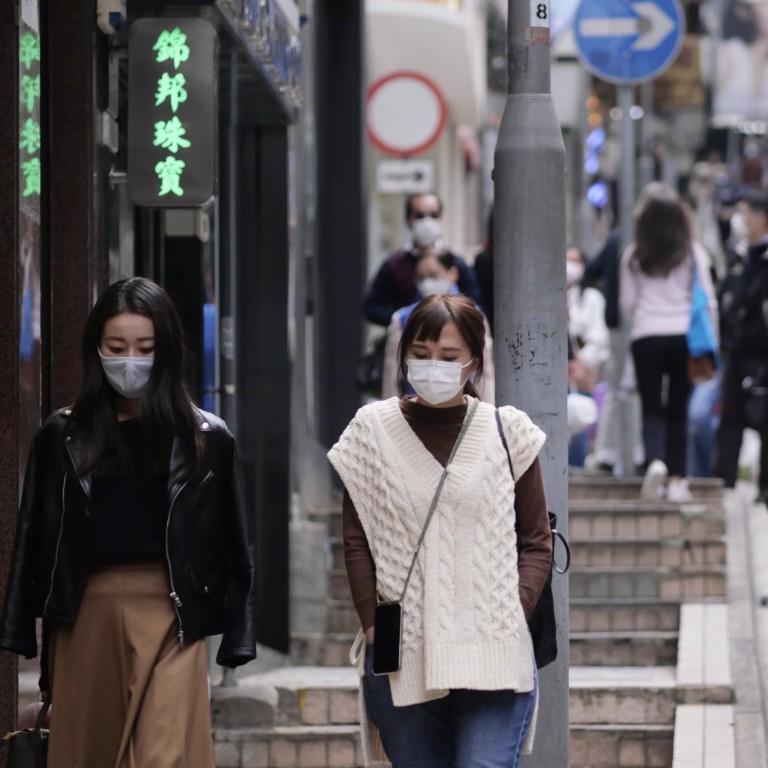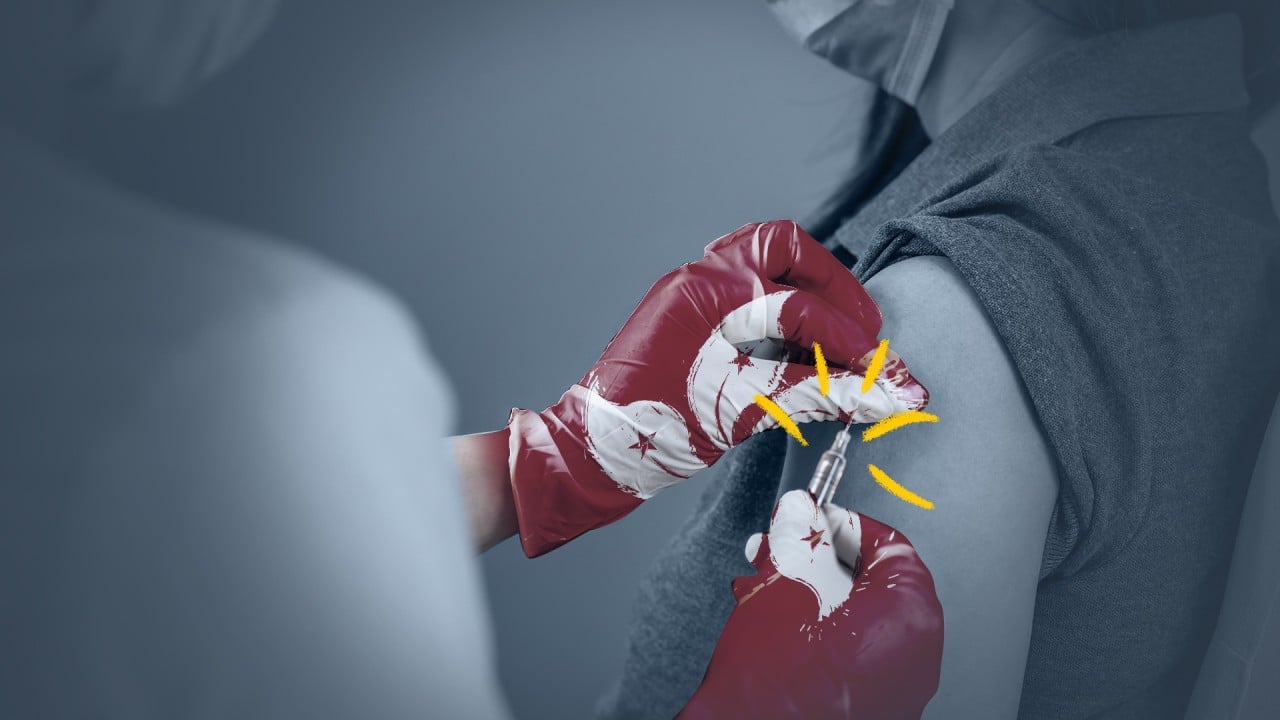
Hong Kong fourth wave: household members of coronavirus patients’ close contacts to be tested under new proposal, as another 25 cases recorded
- City reports 25 new infections on Wednesday, the lowest caseload since November 19
- Hundreds of officers from the disciplined services will be seconded to trace two tiers of contacts, the Post has learned
Hundreds of officers from the disciplined services will be seconded to trace two tiers of people – close contacts of patients as well as the close contacts of close contacts, the Post has learned.
Family members of people sent to quarantine camps could be at higher risk as they had lived together, said Dr Chuang Shuk-kwan, head of the communicable disease branch of the Centre for Health Protection. “It is advisable for them to get tested,” she said.

Currently, household members of those under quarantine can come forward for testing if they are concerned but it is not required by the health authorities.
It was expected that 200 to 300 officers from police, immigration, customs and other departments would be pooled to strengthen manpower for contact tracing.
“The command centre will expand contact-tracing operations to not just close contacts for quarantine, but also other contacts for testing, as part of the enhanced strategy of testing, tracing, quarantine and isolation,” a source said.
The source added that those who were in contact with a Covid-19 patient’s close contacts would be included for testing, and whether it would be made mandatory was being considered but they would not be put into quarantine.
“There is a sign that the epidemic is easing,” Chuang said.
“We are not sure if we have the actual number of all the cases in Hong Kong, because there may be unreported asymptomatic cases or patients who don’t go to the doctor to report their symptoms. We must remain vigilant.”
Three of the latest infections were imported while seven of the 22 local cases were from unknown sources.
The city’s infection tally stood at 9,074, with 154 related deaths. More than 20 people also tested preliminary-positive for the virus.
The latest victim was a chronically ill 95-year-old woman linked to a cluster involving Ho Yuk Ching Willow Lodge, a care facility for the elderly in Tai Kok Tsui. She was first confirmed with the virus in early December and her isolation order at Princess Margaret Hospital ended two days before Christmas. She was sent to North Lantau Hospital on December 28 for treatment of her chronic illness, but her condition deteriorated in recent days and she died on Tuesday afternoon.
Three more infections were linked to a cluster at the Tseung Kwan O-Lam Tin tunnel, including a worker and two close contacts of infected staff. The cluster has now grown to 16 cases.
Other new infections included a resident of the Mental Health Association of Hong Kong’s Irene House in Wong Tai Sin, resulting in another 37 people who stayed there being sent to quarantine. A radiographer from Tuen Mun Hospital was also among those who tested preliminary-positive.
Chung Chi House at Chung On Estate in Ma On Shan was the latest residential block to be issued with a mandatory testing order, after two residents in flats on different floors were infected.

05:09
What there is to know about the Covid-19 vaccines roll out in Hong Kong
On Wednesday, the Social Welfare Department ordered the fourth round of mandatory Covid-19 testing for workers at care homes for the elderly and disabled. They must be screened from January 8 to 17, before being eligible to work between January 18 and 27.
University of Hong Kong microbiologist Dr Ho Pak-leung said the number of family clusters had grown in recent weeks, and urged the government to release figures for those affected, particularly in instances of cross-household gatherings to make the case for regulating such private events.
“If there is the scientific basis and the numbers to show infections due to cross-household gatherings, I think there could be a need to regulate them,” Ho told a radio show on Wednesday.
“There have been cases of a few generations within a single family getting infected when they gathered to celebrate the winter solstice. This data exists to show how many people were affected. The government can use it to show how much benefit regulating cross-household gatherings can bring.”
He pointed to photo booths set up by malls over the festive period, saying these had attracted large crowds, but there had not been the 1.5-metre distancing between people in queues and some had removed their masks to take pictures. Ho urged authorities to step up enforcement of social-distancing rules.

